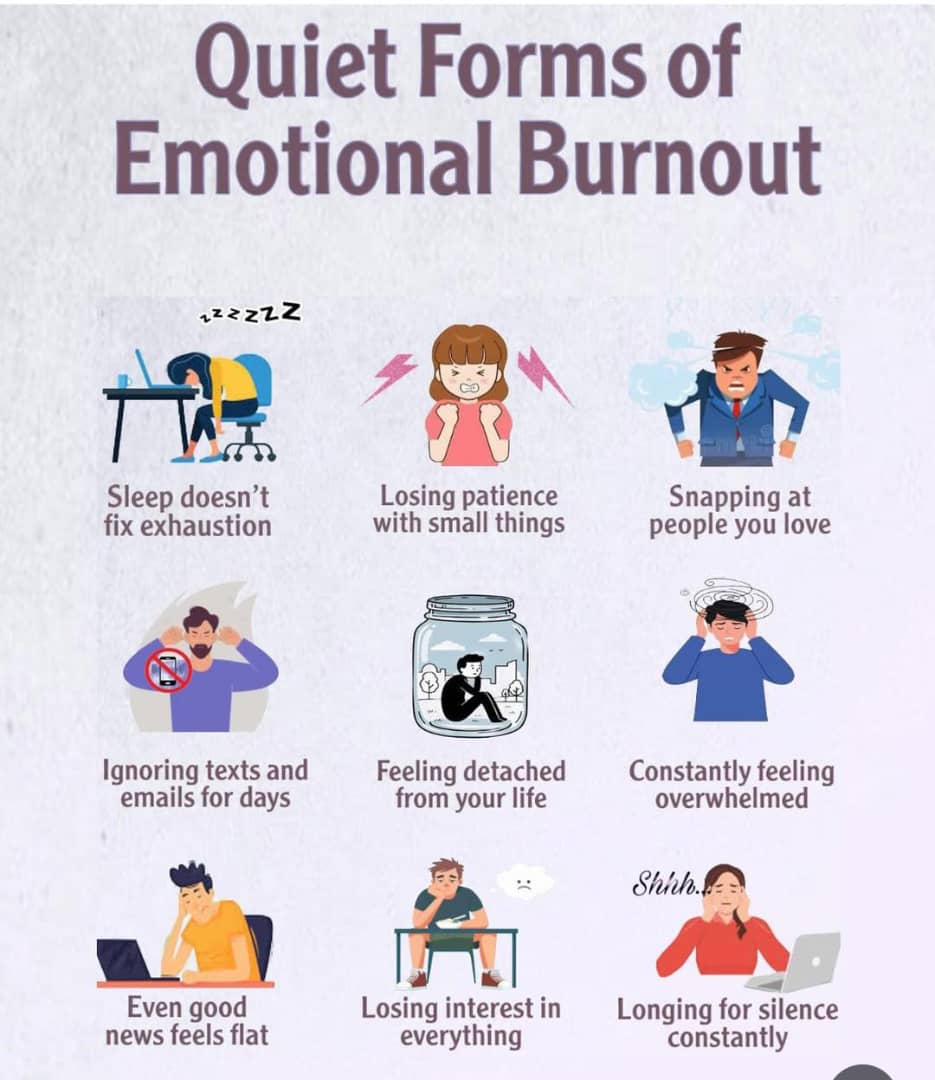Quiet Forms of Emotional Burnout:
Losing patience with small things
Snapping at people you love
Ignoring texts and emails for days
Feeling detached from your life
Constantly feeling overwhelmed
Even good news feels flat
Losing interest in everything
Longing for silence constantly
Powering through is not an option when you’re dealing with burnout. The harder you push, the deeper the exhaustion digs in. Recovery asks for a different path.
Step one: Rest and unplug. Let your body repair
with real rest—not just sleep, but silence and emotional space. Turn off the endless news cycle, step back from constant noise, and turn off notifications so your phone stops demanding you every two minutes. Create space where nothing pulls at you.
Step two: Stop carrying what isn’t yours. You
wouldn’t carry someone else’s bag on a broken leg, and you don’t need to carry other people’s problems when you’re burned out. Say no. Step back. Give yourself that release.
Step three: Change the scenery. A new view,
even for a day, is a reset button. Different sights, smells, and rhythms help the brain rewire and soften exhaustion’s grip
Step four: Support your adrenal glands. They
take the hardest hit in burnout. Protect them with consistent sleep, grounding foods (like oats, nuts, leafy greens, salmon), and supplements such as vitamin C, magnesium, and B vitamins. Avoid alcohol, as it only drains you further.
Step five: Ground yourself in nature. Walk barefoot on earth, lie down in the grass, or if you’re lucky to be near water, swim in the sea or a river. Direct contact with nature recharges the nervous system in a way nothing else can.























